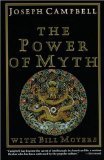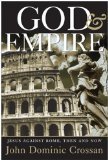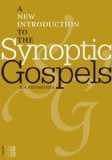Lee Harmon's Blog, page 118
September 2, 2011
1 Kings 22:38, A Bloody Bath
... and the dogs licked up his blood, and the prostitutes washed themselves in it, according to the word of the LORD that he had spoken.
//Ewww!
Did prostitutes really bathe themselves in the blood of King Ahab? Various translations reach different conclusions.
The story runs like this: God, sitting on his throne in heaven, is having trouble coming up with a plan to entice Ahab into a war that will be his demise. All the hosts of heaven are standing around the throne, bantering ideas back and forth. Finally, a "lying spirit" offers to deceive Ahab. God approves the plan, and the lying spirit makes his exit. He speaks through the mouths of Ahab's prophets, promising Ahab victory.
Though warned that his prophets had spoken a lie, Ahab decides to enter battle anyway, cloaked in disguise. It doesn't work; a random arrow finds him, and he spends the battle propped up in his chariot, bleeding to death, watching his army suffer defeat.
The bloody chariot is taken to Samaria, and there it is washed in a pool where prostitutes bathe. Perhaps while prostitutes bathe. The text is unclear.
//Ewww!
Did prostitutes really bathe themselves in the blood of King Ahab? Various translations reach different conclusions.
The story runs like this: God, sitting on his throne in heaven, is having trouble coming up with a plan to entice Ahab into a war that will be his demise. All the hosts of heaven are standing around the throne, bantering ideas back and forth. Finally, a "lying spirit" offers to deceive Ahab. God approves the plan, and the lying spirit makes his exit. He speaks through the mouths of Ahab's prophets, promising Ahab victory.
Though warned that his prophets had spoken a lie, Ahab decides to enter battle anyway, cloaked in disguise. It doesn't work; a random arrow finds him, and he spends the battle propped up in his chariot, bleeding to death, watching his army suffer defeat.
The bloody chariot is taken to Samaria, and there it is washed in a pool where prostitutes bathe. Perhaps while prostitutes bathe. The text is unclear.
Published on September 02, 2011 06:47
September 1, 2011
Book review: The Power of Myth
 by Joseph Campbell and Bill Moyers
by Joseph Campbell and Bill Moyers
★★★★★
Why do we need our folk tales, anyway? Why can't our religious icons be accepted at face value, instead of lifting them up higher than life? How do phrases like "Son of God" spring so easily and meaningfully from our lips? Why must we idolize our heroes, why do we embrace our rituals?
Journalist Bill Moyers interviews Joseph Campbell to learn why mythology is so important to us. This is sort of a compilation of Campbell's work. Says Campbell, mythology is the "song of the universe, the music of the spheres." It is what turns each little cluster of believers, with their own heritage, into the world's Chosen People. From Dante's Divine Comedy to Native American rituals, Campbell has plenty of opinions. He's an intellectual who is simply fun to read...he's got a way of just making sense, like a sort of Feynman for philosophers, that leaves you feeling like maybe you finally understand something.
This isn't a new book, but it's one of those must-reads that we shouldn't forget. I don't think Campbell means to trivialize religion, culture or customs; rather, I dare say, you might even find God in these pages.
(click picture to buy on Amazon)
Published on September 01, 2011 06:27
August 31, 2011
Psalms 147:4, The Names of the Stars
He determines the number of the stars and calls them each by name.
//This is why mathematicians get a headache when they read the Bible. If we estimate 100 billion galaxies of 100 billion stars each, that's a lot of stars to know by name!
They're big names to remember, too. If you create random names from letters, half vowels and half consonants, you'll need star names 19 letters long to name them all. And God's calls them all by name? If he started at the beginning of the universe 13.7 billion years ago, and pronounced 2,300 19-letter star names every second, he'd be about caught up.
Now you know why it's so hard to understand when God speaks. Nobody can listen as fast as he talks.
//This is why mathematicians get a headache when they read the Bible. If we estimate 100 billion galaxies of 100 billion stars each, that's a lot of stars to know by name!
They're big names to remember, too. If you create random names from letters, half vowels and half consonants, you'll need star names 19 letters long to name them all. And God's calls them all by name? If he started at the beginning of the universe 13.7 billion years ago, and pronounced 2,300 19-letter star names every second, he'd be about caught up.
Now you know why it's so hard to understand when God speaks. Nobody can listen as fast as he talks.
Published on August 31, 2011 07:05
August 30, 2011
Book review: Odyssey of a Soul in Bondage
 by Jon E. Quick
by Jon E. QuickI was convicted of first degree pre-meditated murder thirty-four years, one month, and eighteen days after I was born.
This is a very disturbing autobiographical account of a man growing up in an obscure Christian sect with an abusive father. Sometimes known as the "friends and workers" or the "2x2s," this is the same sect I grew up in. My own experience was radically different from Jon's; I'm personally very happy to have been raised in what was, for me, a wholesome atmosphere. But the opinions of members and ex-members of this belief system are so extreme, some going so far as to call it a cult, that I must let you decide for yourself after reading the book. Because of my closeness to the topic, I feel uncomfortable rating it, so I'll just review the book without a rating.
The state of mind of this persecuted man shows through clearly, the more so because we are reading his account from his own hand. Sometimes conflicted, sometimes accusatory, sometimes broken, sometimes resentful, sometimes repentant, it's like a different Jon on each page. One person in his life is described as "evil" on one page and "sweet and loving" on another. The book ends with a plea to his ex-wife for forgiveness.
Before this final plea could be possible, however, Jon finds himself undergoing a Christian transformation in prison. While still behind iron bars, he is set free from his emotional bondage. "Having attained such freedom through the Grace of God, I can safely attest that I will never again be in bondage to the corruption, deceit, and lies of men, regardless of where I may be physically."
Note to readers: If you're not familiar with this Christian sect, a lot of the terminology won't make sense. Start the book by reading the "terms used" in the appendix.
(click picture to buy on Amazon)
Published on August 30, 2011 07:40
August 29, 2011
Genesis 3:4-5, Thou Shalt Surely Die, part II of II
And the serpent said unto the woman, Ye shall not surely die: For God doth know that in the day ye eat thereof, then your eyes shall be opened, and ye shall be as gods, knowing good and evil.
//Two days ago, I speculated about whether God told a little white lie to Adam and Eve. Today, we hear the serpent's opinion on the matter. God is bluffing, he promises; not only will the fruit of the tree of knowledge be delicious, it'll open your eyes.
But did the serpent misunderstand? Perhaps God did mean a spiritual death, and the serpent was misrepresenting the spiritual promise of God, confusing the issue by speaking in terms of base, physical facts. You shall not surely die.
I grew up in a form of Christianity which encouraged abstinence from any form of religious reading other than the Bible. Such books were the work of men, not God; only the Bible is holy. But I stumbled; I ate from the tree of knowledge, and found myself outside Eden. Outside the protective fence of a belief system which shielded me from seeing the real world around me, and having to think for myself.
Did I die in that day? Yes.
But did I die in that day? No, of course not. It may be that I was born again.
//Two days ago, I speculated about whether God told a little white lie to Adam and Eve. Today, we hear the serpent's opinion on the matter. God is bluffing, he promises; not only will the fruit of the tree of knowledge be delicious, it'll open your eyes.
But did the serpent misunderstand? Perhaps God did mean a spiritual death, and the serpent was misrepresenting the spiritual promise of God, confusing the issue by speaking in terms of base, physical facts. You shall not surely die.
I grew up in a form of Christianity which encouraged abstinence from any form of religious reading other than the Bible. Such books were the work of men, not God; only the Bible is holy. But I stumbled; I ate from the tree of knowledge, and found myself outside Eden. Outside the protective fence of a belief system which shielded me from seeing the real world around me, and having to think for myself.
Did I die in that day? Yes.
But did I die in that day? No, of course not. It may be that I was born again.
Published on August 29, 2011 05:28
August 28, 2011
Book review: Jesus: A story of Enlightenment
 by Deepak Chopra
by Deepak Chopra ★★★
Says Chopra, "This book isn't about the Jesus found in the New Testament, but the Jesus who was left out." This is a novel, about Jesus' own period of enlightenment before he began his ministry, and how he found God. Or, rather, how he found himself, the Son of God.
Jesus turns down the opportunity to join the Zealots, studies with the Essenes (whom he disappoints), and eventually begins a long and dangerous trek to find a mysterious guru, where he discovers his true soul. By the end of the book, Jesus is ready to take on the Devil, in that famed three-part temptation.
Chopra's Eastern/Buddhist background shines where it shouldn't. Interesting and well-written, but certainly not scriptural! And not really my thing.
(click picture to buy on Amazon)
Published on August 28, 2011 07:35
August 27, 2011
Genesis 2:17, Thou Shalt Surely Die, Part I of II
But of the tree of the knowledge of good and evil, thou shalt not eat of it: for in the day that thou eatest thereof thou shalt surely die.
//We all know the story. After God promised Adam he would die on the day he ate the forbidden fruit, the serpent showed up, contradicting God's promise. "Ye shall not surely die: For God doth know that in the day ye eat thereof, then your eyes shall be opened, and ye shall be as gods, knowing good and evil." So Adam and Eve ate, and their eyes were opened, and nobody died.
I'm often accused of reading the bible too literally. Face value is best, unless there's reason to think otherwise, right? God said they would die, they called God's bluff, and nobody died. What confuses me is, why does this story need reinterpreting? Early Hebrew writers certainly found no evil in deception. On the contrary, God bestowed his blessing on several acts of deception, from Jacob deceiving his father to steal Esau's birthright, to Jael pretending kindness before pounding a nail through Sisera's temples as he slept.
God told a little white lie, it worked for a time until the serpent showed up and exposed the truth, and mankind fell. But by the time of the New Testament, even subtle deception seemed immoral, an activity that could never be attributed to God! Titus 1:2 even promises that God cannot lie.
So what do we do with the story of man's downfall? We gloss it over with wordplay. We pretend God didn't really mean "in that day," or we pretend God meant a spiritual death, not a natural one. We ruin a great story by denying God a personality. Be honest, now: wouldn't you find it much more interesting to meet the God that walked in the Garden, toying with his humans?
On Monday I'll discuss another way of reading The Original Sin.
//We all know the story. After God promised Adam he would die on the day he ate the forbidden fruit, the serpent showed up, contradicting God's promise. "Ye shall not surely die: For God doth know that in the day ye eat thereof, then your eyes shall be opened, and ye shall be as gods, knowing good and evil." So Adam and Eve ate, and their eyes were opened, and nobody died.
I'm often accused of reading the bible too literally. Face value is best, unless there's reason to think otherwise, right? God said they would die, they called God's bluff, and nobody died. What confuses me is, why does this story need reinterpreting? Early Hebrew writers certainly found no evil in deception. On the contrary, God bestowed his blessing on several acts of deception, from Jacob deceiving his father to steal Esau's birthright, to Jael pretending kindness before pounding a nail through Sisera's temples as he slept.
God told a little white lie, it worked for a time until the serpent showed up and exposed the truth, and mankind fell. But by the time of the New Testament, even subtle deception seemed immoral, an activity that could never be attributed to God! Titus 1:2 even promises that God cannot lie.
So what do we do with the story of man's downfall? We gloss it over with wordplay. We pretend God didn't really mean "in that day," or we pretend God meant a spiritual death, not a natural one. We ruin a great story by denying God a personality. Be honest, now: wouldn't you find it much more interesting to meet the God that walked in the Garden, toying with his humans?
On Monday I'll discuss another way of reading The Original Sin.
Published on August 27, 2011 07:23
August 26, 2011
Book review: God & Empire
 by John Dominic Crossan
by John Dominic Crossan
★★★★
It's Jesus vs. Rome. Who will win?
If you've read much about the first century, you're already well aware of the conflict between Christian and Roman claims. Both sides laid claim to the Son of God. Both claimed the inauguration of a new, wonderful age. The Caesars, especially in Asia Minor, were worshipped as God and often went by the title Son of God. Caesar Augustus, in particular, was hailed as the savior of the world, the bringer of peace and prosperity.
The Christians claimed a coming kingdom, or a hidden kingdom; the Romans proved their kingdom by force and heavy presence. The Christian kingdom was not of this world; the Roman kingdom invaded every part of life. Jesus' kingdom was one of nonviolence; the Roman kingdom was just the opposite.
Crossan highlights the conflict between the two, and what, exactly, the Christians were claiming in their "uprising." Of particular interest, to me, was the discussion of Paul, whom Crossan divides into three categories: The radical Paul, the liberal Paul, and the conservative Paul, representing three stages of Pauline writings.
I give it four stars instead of five, not for the lack of quality, but because little is original from his other writings. It's just organized and directed differently to emphasize a point.
(click picture to buy on Amazon)
Published on August 26, 2011 06:43
August 25, 2011
Ezekiel 8:14-15, Weeping for Tammuz
Then he brought me to the door of the gate of the LORD'S house which was toward the north; and, behold, there sat women weeping for Tammuz. Then said he unto me, Hast thou seen this, O son of man? turn thee yet again, and thou shalt see greater abominations than these.
Here's a puzzle. Why is it such an abomination to sit and weep at the gates of the LORD's house?
It isn't that the women are weeping, it's who they weep for. They aren't weeping for a friend or relative; they're partaking in a widespread annual ritual, in which cult members mourn the death of the Sumerian god of food and vegetation.
The summer solstice marks the period of declining daylight hours, and this annually recurring cycle of the beginning of death was "celebrated" in Babylonia with a six-day funeral for the god, Tammuz. Tammuz is one of an array of dying-and-rebirthing gods, whose story is told in nature itself.
These women are honoring a Babylonian god, and doing so at the very gates of the Temple.
Here's a puzzle. Why is it such an abomination to sit and weep at the gates of the LORD's house?
It isn't that the women are weeping, it's who they weep for. They aren't weeping for a friend or relative; they're partaking in a widespread annual ritual, in which cult members mourn the death of the Sumerian god of food and vegetation.
The summer solstice marks the period of declining daylight hours, and this annually recurring cycle of the beginning of death was "celebrated" in Babylonia with a six-day funeral for the god, Tammuz. Tammuz is one of an array of dying-and-rebirthing gods, whose story is told in nature itself.
These women are honoring a Babylonian god, and doing so at the very gates of the Temple.
Published on August 25, 2011 05:54
August 24, 2011
Book review: A New Introduction to the Synoptic Gospels
 By Roland Meynet
By Roland Meynet ★★★★
This book is not what I was expecting when I saw the title! Wow. When Meynet titled his book an introduction, he didn't mean he'd be providing a surface description. He meant that after you work your way through 415 pages of analysis, you'll have barely turned the cover on the Synoptics.
You can give a man a fish, and feed him for a day. Or, you can teach him to fish, and feed him until they quit stocking the pond. This book is meant as a university text, to teach you how to analyze the Bible as a linguist, by taking note of the links which tie the pericopes together, and trying to grasp the logic which connects them. It's a relatively new approach to Biblical study, sometimes at odds with the historical-critical method and normal form criticism. My rating of four stars does not represent my reading enjoyment, but rather, the teaching technique and depth of study. Reading Meynet's book is not fun; it's work.
Seriously. You're going to study primarily two Bible pericopes in these 415 pages: the healing of the blind man at Jericho, and the calling of the rich man . You'll study them in context, noting each text's sub-sequences, carefully grinding out their meaning through rhetorical analysis of all three Synoptics.
This exhausting technique does yield results. As a simple example of the strength of this type of literary Biblical analysis, consider the story of the blind man at Jericho, as told in the Gospel in Mark. Or were there two blind men healed, as Matthew relates? Exegetes in the past have wondered which version is historically accurate; Matthew or Mark? But the question misses the point of the passage. Contextual analysis to the rescue: By reading up just a little bit, in both Matthew and Mark, we find the story of the sons of Zebedee, James and John, requesting that they sit on the right and the left of Jesus when he comes into his glory. Matthew has recognized the context, and aided in its interpretation by changing one man into two. The story of the blind man has become the story of two blind men in Matthew, and we now recognize the blind men as James and John.
(click picture to buy on Amazon)
Published on August 24, 2011 05:58



